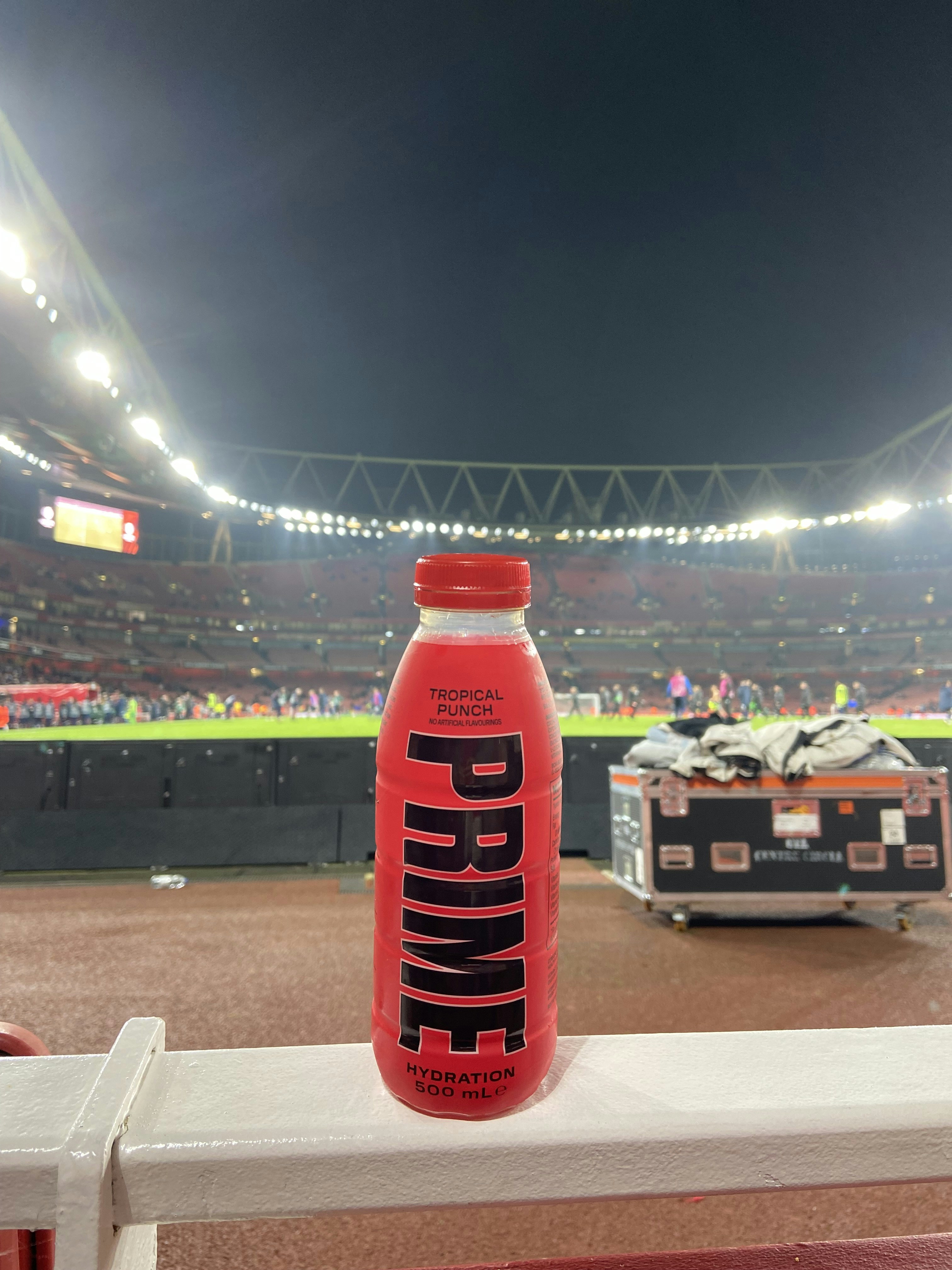The Importance of Electrolytes: Understanding Their Role in Hydration
Introduction to Electrolytes
Electrolytes are essential minerals that carry an electric charge, playing a critical role in several physiological processes in the human body. These charged particles, which include sodium, potassium, calcium, chloride, bicarbonate, and magnesium, are fundamental to maintaining fluid balance, muscle function, and overall cellular health. Electrolytes are typically formed when an acid, base, or salt dissociates into ions in a solution, allowing them to conduct electricity. This dissociation is vital for various bodily functions, including nerve impulse conduction, muscle contraction, and maintaining the body’s pH balance.
The most common electrolytes in the body include sodium, which helps regulate blood pressure and blood volume, and potassium, which is crucial for proper muscle and nerve function. Calcium is another vital electrolyte, primarily associated with bone health and muscle contractions. Chloride works alongside sodium to maintain fluid balance, while bicarbonate plays a key role in regulating the body’s acidity levels. Magnesium is often referred to as the “forgotten electrolyte,” although it is equally important for many biochemical reactions within the body, helping to regulate muscle and nerve function, blood glucose levels, and blood pressure.
Maintaining an appropriate balance of these electrolytes is critical for health. An imbalance can lead to a range of health issues, including dehydration, muscle cramping, irregular heartbeat, and renal problems. The body generally maintains electrolyte levels through dietary intake and excretion through urine and sweat. As such, ensuring sufficient intake of electrolyte-rich foods and beverages is crucial, particularly during physical activity or in hot weather where the risk of depletion increases. Understanding the role of electrolytes in hydration and their contributions to bodily functions highlights their importance in daily health and well-being.
The Role of Electrolytes in Hydration
Electrolytes are crucial for maintaining hydration levels in the body, playing a key role in various physiological functions. These electrically charged minerals, including sodium, potassium, calcium, and magnesium, dissolve in bodily fluids and help regulate many essential processes. An optimal balance between electrolytes and water is necessary for the proper functioning of cells, tissues, and organs, which directly influences overall health and physical performance.
Hydration is not merely about the quantity of water consumed; it also depends on the electrolyte levels present in the body. When we engage in physical activities or experience excessive perspiration, we lose both water and electrolytes. This loss can lead to dehydration, characterized by symptoms such as fatigue, dizziness, and muscle cramps. Insufficient electrolytes disrupt the body’s fluid balance, ultimately impairing performance and cognitive functions. For athletes, maintaining proper hydration through electrolyte balance is vital for endurance and recovery.
The interplay between electrolytes and water is primarily observed in the process of osmosis, where water moves across cell membranes to equalize electrolyte concentration. This mechanism underlines the importance of consuming both fluids and electrolyte-rich foods, particularly after intense exercise or in hot environments. Foods such as bananas, leafy greens, and sports drinks containing electrolytes can effectively replenish these essential minerals. Both electrolytes and adequate hydration work synergistically to maintain blood pressure, regulate nerve impulses, and ensure muscle contractions operate efficiently.
In summary, electrolyte balance is indispensable for proper hydration and overall health. Understanding their role aids individuals, particularly athletes, in making informed decisions regarding their hydration strategies, thereby optimizing performance and enhancing well-being. Ensuring a sufficient intake of both water and electrolytes is thus essential for maintaining a healthy, hydrated body.
How Electrolyte Imbalance Occurs
Electrolytes are essential minerals that carry an electric charge and are vital for many bodily functions, including hydration, muscle function, and nerve signaling. An imbalance occurs when the levels of these minerals become too high or too low, which can lead to various health issues. One of the primary causes of electrolyte imbalance is dehydration. When the body loses fluids through excessive sweating, vomiting, diarrhea, or inadequate water intake, the concentration of electrolytes in the bloodstream can become significantly altered. This situation is particularly common during hot weather or after prolonged physical exertion, where replenishment of fluids and electrolytes is often neglected.
Illness can also contribute to electrolyte imbalance. Conditions such as diabetes, chronic kidney disease, or gastrointestinal disorders can disrupt the normal balance of electrolytes. For example, patients with uncontrolled diabetes may experience high levels of glucose, leading to increased urination and subsequent loss of electrolytes. Additionally, infections that cause fever or gastrointestinal symptoms can result in excessive fluid loss, further complicating this balance.
Intense exercise is another contributing factor. Athletes or individuals engaging in rigorous workouts may sweat profusely, leading to a substantial loss of sodium, potassium, and magnesium. If these losses are not compensated for through proper hydration and replenishment, it can result in symptoms like muscle cramps and fatigue. Certain dietary practices, such as excessively restrictive diets or those low in vital nutrients, can also lead to an imbalance over time. A lack of sufficient fruits, vegetables, or electrolyte-containing foods may hinder the body’s ability to maintain healthy levels.
Recognizing the symptoms of an electrolyte imbalance is crucial for timely intervention. Common signs include fatigue, confusion, muscle weakness, and irregular heartbeat. If left unaddressed, these imbalances can pose serious health risks, including seizures and cardiovascular complications. Therefore, understanding the causes and effects of electrolyte imbalance is essential for maintaining optimal health and wellness.
Signs of Electrolyte Deficiency
Electrolytes play a crucial role in maintaining various physiological functions in the body, and a deficiency can lead to several noticeable signs and symptoms. One of the most common indicators of low electrolyte levels is muscle cramps. These involuntary contractions may occur during physical activity or at rest, often signaling an imbalance in sodium, potassium, or magnesium levels. Additionally, individuals may experience general fatigue. This pervasive tiredness can stem from the body’s inability to regulate nerve and muscle function properly due to insufficient electrolyte intake.
Dizziness or lightheadedness is another significant symptom associated with electrolyte deficiency. Insufficient levels of electrolytes such as sodium can affect blood pressure regulation and hydration status, potentially leading to a feeling of faintness or instability. It is essential to recognize this sign, particularly in individuals engaging in strenuous activities or those exposed to hot environments, as it may indicate an urgent need for electrolyte replenishment.
In more severe cases, an electrolyte imbalance can lead to an irregular heartbeat, known medically as arrhythmia. This condition can manifest as palpitations or an unusual heart rate, which could pose serious health risks if left unaddressed. The heart relies on a delicate balance of electrolytes, particularly potassium and calcium, to function correctly. Therefore, any disruptions in these levels should be taken seriously.
Being aware of the signs of electrolyte deficiency is vital for prevention and early intervention. By recognizing symptoms such as muscle cramps, fatigue, dizziness, and irregular heartbeat, individuals can take proactive steps to address these issues through dietary adjustments or supplementation. Maintaining adequate hydration with electrolyte-rich foods and beverages is essential for overall health and well-being.
Sources of Electrolytes
Electrolytes are vital minerals that play a crucial role in maintaining hydration and supporting various bodily functions. Obtaining adequate electrolytes can be achieved through dietary sources and supplements. A wide array of natural foods, particularly fruits and vegetables, are excellent choices rich in essential electrolytes. For instance, potassium is abundant in bananas, avocados, and sweet potatoes, while citrus fruits like oranges and lemons provide significant amounts of potassium as well as magnesium. Spinach and kale are also rich in these minerals, making leafy greens an excellent addition to any diet centered around hydration.
In addition to fruits and vegetables, certain meats and dairy products serve as good sources of electrolytes. Chicken, beef, and fish are typically high in sodium and potassium, while yogurt offers a blend of calcium and magnesium. These proteins not only contribute to electrolyte balance but also provide necessary nutrients for overall health.
Commercial electrolyte drinks and supplements have surged in popularity, particularly among athletes and individuals engaging in intense physical activities. These products often contain a mixture of sodium, potassium, calcium, and magnesium, designed to replenish electrolytes lost during exercise. While convenient, it is essential to scrutinize the ingredients in these beverages, as many can be high in added sugars and artificial flavors, which may not align with a healthy lifestyle. Additionally, incorporating natural sources may be more beneficial as they come with added vitamins and minerals not found in processed options.
Ultimately, both natural food sources and commercial supplements can help maintain electrolyte levels. Balancing one’s diet with a variety of whole foods alongside, if necessary, the judicious use of electrolyte drinks can support hydration effectively. By understanding the benefits and drawbacks of each option, individuals can make informed choices that best fit their lifestyle and hydration needs.
The Impact of Exercise on Electrolyte Levels
Physical activity significantly influences electrolyte levels in the body, which play a critical role in maintaining proper hydration and ensuring optimal physiological function. During exercise, the body undergoes a variety of changes, including increased heart rate and elevated body temperature, often resulting in sweating. Sweat is primarily composed of water, but it also contains essential electrolytes such as sodium, potassium, and magnesium, which are crucial for various bodily functions including muscle contraction and nerve transmission.
As individuals engage in physical activity, especially in hot or humid conditions, they lose considerable amounts of these electrolytes through sweat. This loss can lead to an electrolyte imbalance, which may manifest as muscle cramps, fatigue, and decreased performance. The amount and type of fluid lost can vary greatly based on factors such as exercise intensity, duration, and individual sweat rates. For example, endurance athletes or those participating in prolonged physical activities are more likely to experience significant electrolyte depletion and may require careful management of their hydration strategies.
To effectively replenish lost electrolytes, it is essential for individuals to consume hydrating fluids that contain these vital minerals post-exercise. Electrolyte-rich beverages, sports drinks, or natural sources such as coconut water can be beneficial in restoring balance. Additionally, incorporating foods that are high in electrolytes—such as bananas, spinach, and avocados—into one’s diet can further support recovery and hydration efforts. Understanding the impact of various types of workouts on hydration needs is crucial for athletes and fitness enthusiasts alike, allowing them to tailor their hydration strategies to optimize performance and overall health.
Tips for Maintaining Electrolyte Balance
Maintaining a proper balance of electrolytes is essential for overall health and well-being. To achieve this, individuals should adopt a few practical strategies that encompass dietary choices, hydration, and lifestyle adjustments.
A well-rounded diet rich in electrolyte-containing foods is foundational. Foods such as bananas, avocados, and leafy greens provide potassium; dairy products and leafy vegetables supply calcium; and nuts and seeds are excellent sources of magnesium. Incorporating these foods into your daily meals ensures a steady intake of vital electrolytes. Consuming whole grains, beans, and fish can also contribute significantly to maintaining adequate levels of sodium and potassium.
Staying properly hydrated is equally crucial. It is essential to drink water consistently throughout the day, particularly during physical activity or hot weather. Plain water is effective for everyday hydration, but for prolonged exercises or intense workouts, electrolyte-infused beverages may be beneficial to help replenish lost minerals. For those who may not enjoy plain water, adding a squeeze of lemon or a splash of natural fruit juice can enhance flavor and promote fluid intake.

Being mindful of alcohol and caffeine consumption is important as well. Both substances can lead to dehydration, which can disrupt electrolyte levels. Moderation is key; consider limiting intake and compensating with additional water and electrolyte sources. Furthermore, in extreme weather conditions or after intense physical exertion, paying special attention to electrolyte replenishment is vital to prevent imbalances.
Lastly, monitoring your body’s signals can provide valuable insight into your electrolyte status. Symptoms such as muscle cramps, fatigue, or excessive thirst may indicate an imbalance. By implementing these dietary recommendations and lifestyle choices, you can maintain a healthy electrolyte balance and support overall hydration and bodily functions.
The Best Time to Focus on Electrolyte Intake
The importance of electrolytes cannot be overstated, particularly during specific circumstances that can deplete these essential minerals from the body. One critical period to pay attention to electrolyte intake is during heat waves. High temperatures increase sweating, leading to a significant loss of electrolytes, particularly sodium and potassium. When exposed to excessive heat, individuals must proactively replenish these nutrients to avoid dehydration and heat-related illnesses.
Another situation demanding increased focus on electrolyte consumption arises during intense physical activities, such as endurance sports or heavy workouts. When engaging in vigorous exercise, the body not only loses fluids but also vital electrolytes. Athletes are encouraged to incorporate electrolyte drinks or supplements into their regimen to maintain optimal performance and prevent muscle cramps, fatigue, and post-exercise recovery challenges. Particularly in high-intensity scenarios, the need for replenishing electrolytes stands out, as they play a pivotal role in muscle function and overall fluid balance.
Illnesses, particularly those involving vomiting or diarrhea, can also cause rapid electrolyte loss, necessitating immediate attention to recovery strategies. These conditions can result in significant disturbances in electrolyte levels, leading to complications if not addressed promptly. Hydration solutions containing electrolytes are often recommended to restore balance swiftly, minimizing long-term effects on health.
Lastly, dietary changes can impact electrolyte levels as well. For instance, individuals adopting restrictive diets may inadvertently reduce their intake of sodium, potassium, or magnesium-rich foods. It is crucial to ensure that such dietary modifications do not lead to imbalances, as this can result in fatigue, weakness, and other health concerns. Regularly monitoring electrolyte intake under these circumstances aids in maintaining overall hydration and health.
Conclusion
In summarizing the critical role of electrolytes, it is apparent that these minerals are essential to maintaining optimal hydration, facilitating bodily functions, and supporting overall health. Electrolytes, including sodium, potassium, calcium, and magnesium, contribute significantly to fluid balance, nerve conduction, and muscle function. When the body loses fluids through activities such as exercise, sweating, or illness, the loss of electrolytes can lead to dehydration and various health complications.
Moreover, understanding the balance of electrolytes becomes increasingly crucial in today’s lifestyle, where physical exertion and environmental factors may elevate our electrolyte needs. Ensuring that we replenish these vital minerals through diet or supplements can help maintain energy levels, enhance performance, and prevent potential health issues related to deficiency. Foods rich in electrolytes, such as fruits, vegetables, and dairy products, should be a staple in one’s daily nutrition to support bodily functions.
Additionally, it is vital to recognize the signs of electrolyte imbalance, which can manifest as muscle cramps, fatigue, or irritability. Being mindful about hydration strategies, especially for those engaging in rigorous physical activities or living in hot climates, can prove beneficial. While the body manages electrolyte levels under normal conditions, external factors can challenge this balance—thus, proactive measures should be taken to ensure adequate intake.
In conclusion, the importance of electrolytes in our lives cannot be overstated. They not only play a pivotal role in hydration but also significantly impact overall health and well-being. By taking electrolytes seriously and integrating them into our daily routines, we can foster better health outcomes and enhance our quality of life. Making informed dietary choices and staying aware of our body’s needs is essential for ensuring we keep our electrolyte levels balanced.


